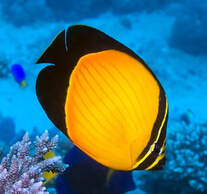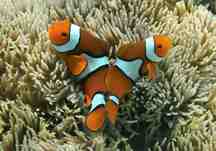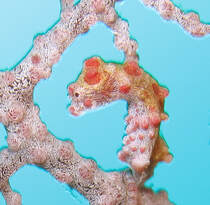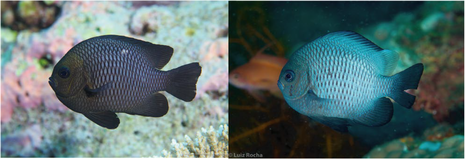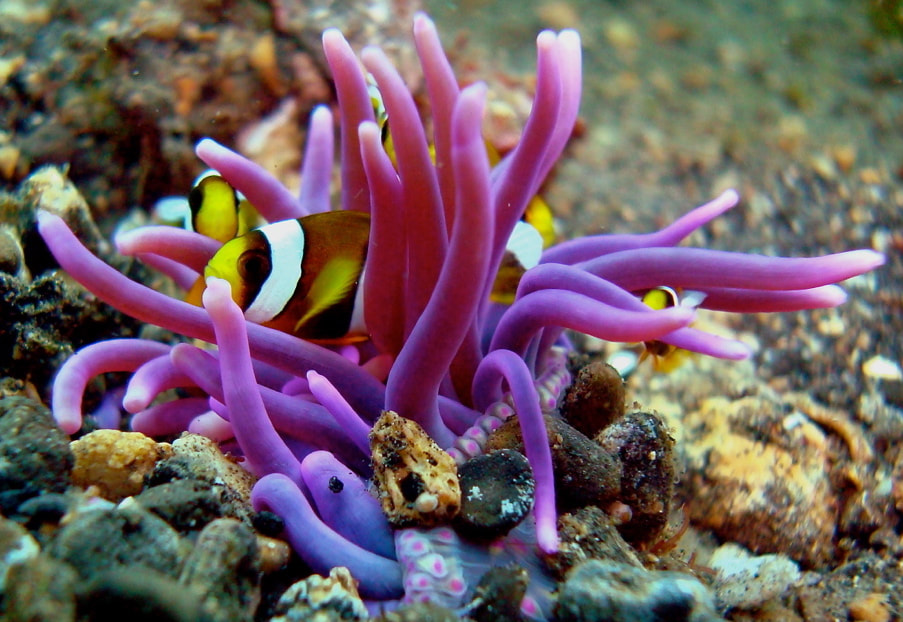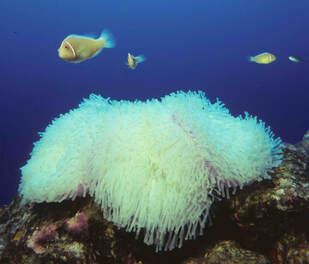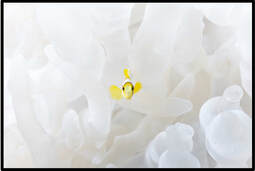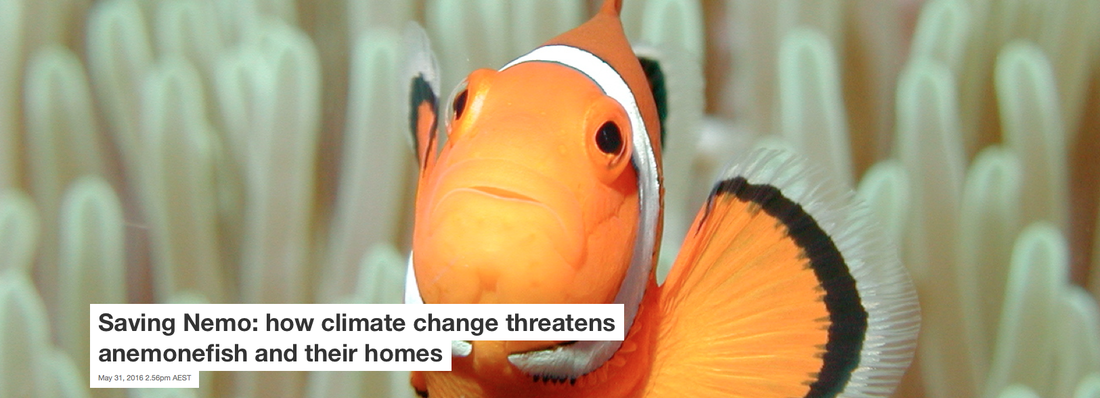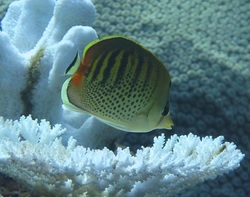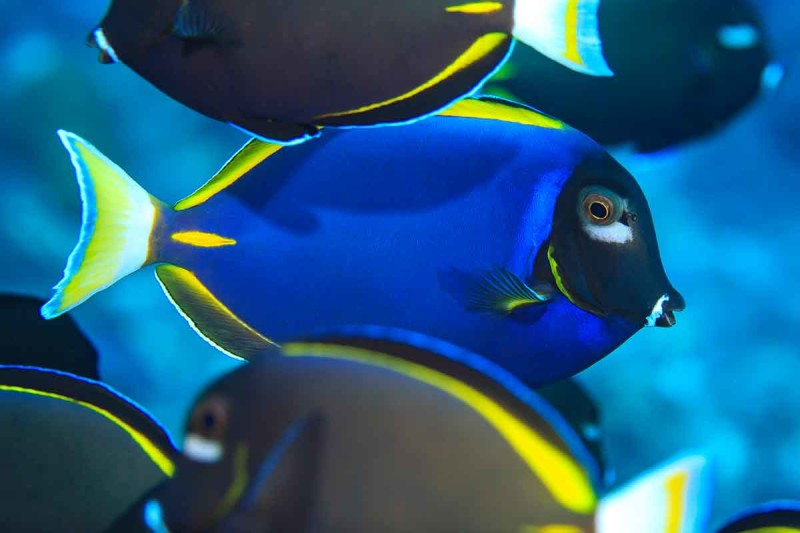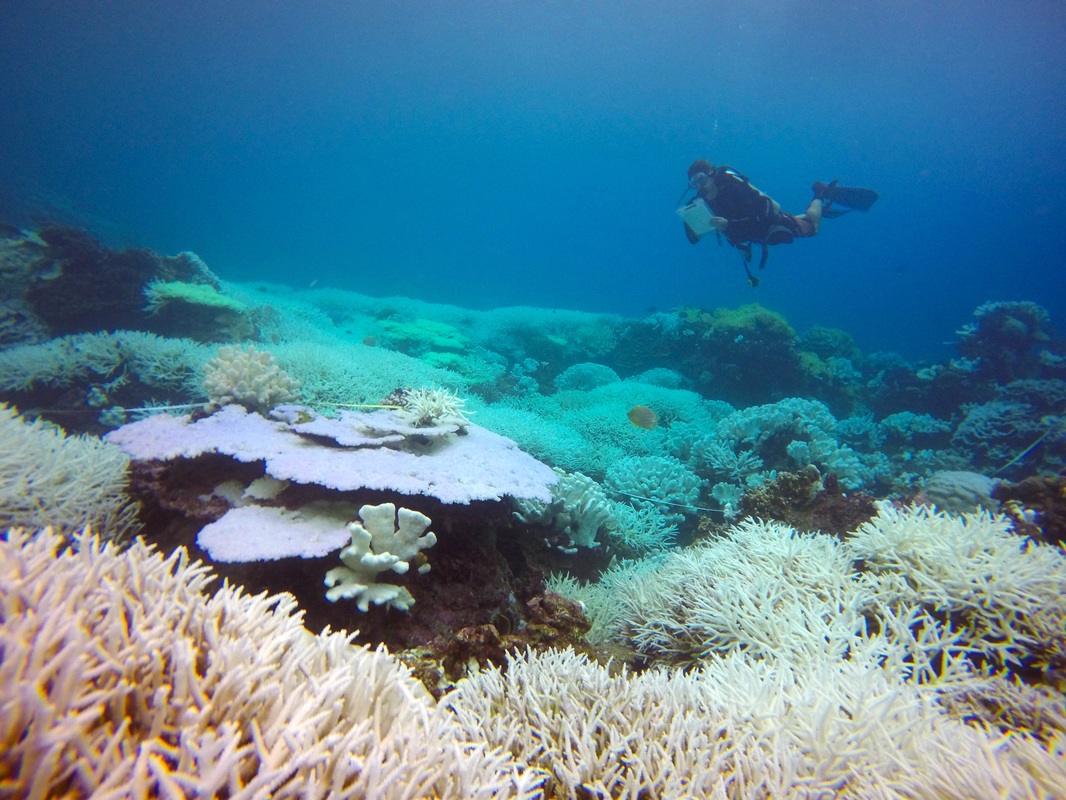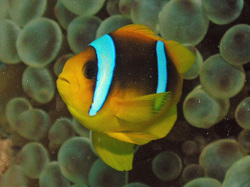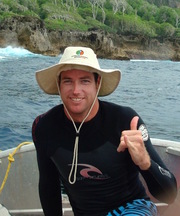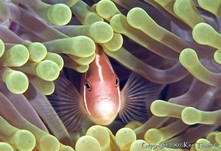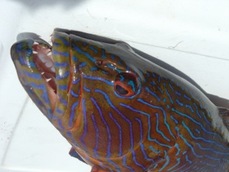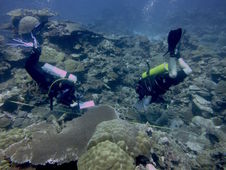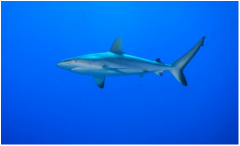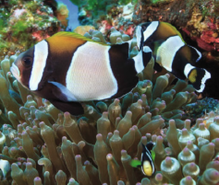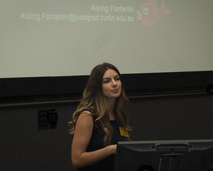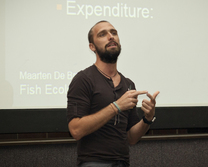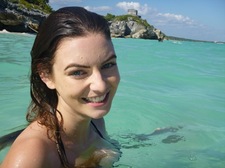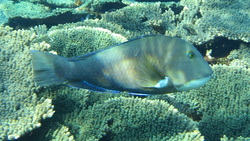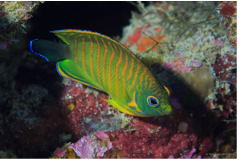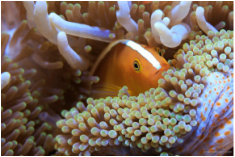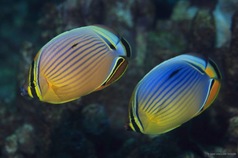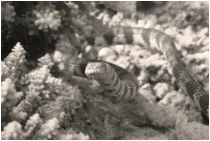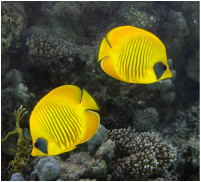Latest news
|
April, 2020
Joseph DiBattista from the Australian Museum leads a study into the genetic structure of reef fishes in the Red and Arabian Seas. Using a population genomic (RAD-seq) approach, the research revealed that widely distributed reef fishes had greater genetic subdivision than endemic species. The study indicated that historical events, rather than current environmental conditions, were linked to patterns in genetic structure. The study was published in the journal Ecology and Evolution [pdf]. |
|
March, 2020
New PhD Scholarship available to study climate change impacts on clownfishes. Open to Australian and International students.
Full description here. |
|
March, 2020
Maarten De Brauwer's passion for conserving Indonesia's marine biodiversity leads to a study on extinction risk in pygmy seahorses. These minuscule seahorses only live on seafans and the study found this critical habitat is common; however, only a small proportion of the seafans are inhabited by seahorses. Pygmy seahorses are a popular attraction among dive enthusiasts, but their low abundance is a concern. The study was published in the journal Coral Reefs [pdf].
|
February, 2020
|
Eva Salas leads a study on hybridisation in the threespot damselfish that was published in the journal Ecology and Evolution [pdf]. The study found that the widespread damselfish is comprised of an Indian and Pacific Ocean lineages and the two lineages hybridise at Christmas and Cocos Islands. However the evolutionary outcome of hybridisation differs between the two locations.
|
|
December, 2019
Great work by Madeleine Emms and Pablo Saenz-Agudelo leading an international collaboration examining the phylogeography of anemones inhabited by anemonefishes. The study spanned the Indo-Pacific and Red Sea and found that different species of host anemones share similar evolutionary histories, which also reflect evolutionary patterns in anemonefishes. The study was published in the Journal of Biogeography [pdf]
|
|
November 15, 2019
The Australian Research Council announced that my DECRA application was successful. I will be starting January 2020 at The University of Queensland. The aim of this DECRA project is to determine how human impacts affect the evolution of coral reef fishes. The study will focus on clownfishes and will first examine how human impacts (including climate change) interfere with the mating processes and cause hybridisation. Secondly, the genetic consequences of this hybridisation and its impact on species diversity will be determined.
|
|
September 15, 2016
Congratulations to Tane Sinclair-Taylor for winning the Ecology and Environmental Biology section of the Royal Society Publishing photography competition. The winning photo featured a juvenile Red Sea anemonefish in a bleached bubbletip anemone.
|
May 31, 2016
|
Today's article Saving Nemo in The Conversation with Ashley Frisch examines the effects of climate change and over fishing on anemonefishes and their anemones. The article summarises recent anemonefish studies by a range of researchers and covers the latest global bleaching event affecting places like the Great Barrier Reef.
|
|
May 18, 2016
Andrew Hoey from the ARC Centre of Excellence for Coral Reef Studies leads the latest review on the effects of climate change on coral reefs. The review was recently published in the journal Diversity [pdf] and covers the most recent climate change research with a focus on impacts to corals and reef fishes.
|
|
May 10, 2016
Congratulations Joseph DiBattista for leading an exciting paper on hybridisation in a surgeonfish complex. Hybridisation was found at specific locations (suture zones) in the Indian and Pacific Oceans where the geographic ranges of two closely related species overlapped. The evolutionary outcome of hybridisation varied between locations and species. The study was recently published in the journal Molecular Phylogenetics and Evolution [pdf] and was highlighted in New Scientist.
|
|
May 6, 2016
The team is on Christmas Island researching the Coral Bleaching Event in which 70% to 90% of corals in the shallows have bleached. See the interview with ABC National Radio.
|
|
April 22, 2016
Latest news from Curtin University highlights research on how to minimise the impacts of the aquarium trade on the relationship between anemones and clownfishes "Keep your friends close and your anemones closer". See the full study led by Ashley Frisch published in the journal Coral Reefs [pdf]
|
|
April 8, 2016
Congratulations to Justin Gilligan for winning the 2016 Save Our Seas Foundation Marine Conservation Photography Grants. Justin is a photojournalist and marine biologist who has won numerous awards for his amazing photos of marine life and highlighting the threats they face. As a marine biologist, Justin has been involved in many of the research projects featured on this website
|
|
March 30, 2016
|
|
March 23, 2016
Well done Ashley Frisch for leading an international team of researchers in a study titled "Key aspects of the biology, fisheries and management of coral grouper". The review was recently published in Reviews in Fish Biology and Fisheries [pdf]
|
|
March 21, 2016
Well done Zoe Richards and Nicole Ryan for publishing their work on how coral communities on oceanic islands are structured differently to non-oceanic locations. See more at Marine Ecology Progress Series [pdf]
|
|
Feb 23, 2016
Ashley Frisch leads a study on the diets of coral reef sharks. The study was published online today at the journal Coral Reefs [pdf]. See the media coverage at ARC Centre of Excellence for Coral Reef Studies & Nature World News
|
|
Feb 20, 2016
Well done Rosie Steinberg for publishing her honours research in the journal Coral Reefs on genetic connectivity among populations of the wide-band anemonefish [pdf]
|
|
Feb 18, 2016
Congratulations to Aisling Fontanini and Maarten De Brauwer for winning best students talks at the Curtin Marine and Coastal Research Network Conference
|
|
Feb 15, 2016
Well done to Aisling Fontanini for winning an Aim For The Stars Scholarship from The Layne Beachley Foundation. Scholarships are awarded to Australian women that are emerging leaders in the field of choice.
|
|
Feb 5, 2016
Big congratulations to Kathy Cure for handing in her PhD thesis and giving her exit seminar. Kathy’s PhD was titled “Biogeography and ecology of baldchin groper Choerodon rubescens in a changing climate”
|
|
Feb 3, 2016
Congratulations to Stefano Montanari for leading a review on the importance of ecological and behavioural studies of marine fish hybridisation that was just published online at Reviews in Fish Biology and Fisheries [pdf]
|
|
Jan 22, 2016
Ashley Frisch leads an important experimental field study in the consequences of harvesting anemonefish. The study was published online today at the journal Coral Reefs [pdf]
|
|
Jan 12, 2016
Well done to Ellen Waldrop for leading a study on phylogeography and evolution of coral-eating butterflyfishes across the Indo-Pacific and Red Sea. The study has just been published online in the Journal of Biogeography [pdf]
|
|
Jan 5, 2016
Great work Blanche D’Anastasi for her recent publication in Biological Conservation on the rediscovery of two sea snakes that were thought to have gone extinct. The sea snakes are endemic to Western Australia and are listed by the IUCN as Critically Endangered. The story was also featured in New Scientist
|
|
Jan 1, 2016
Joey DiBattista has led an excellent review on the origin of endemic species in the Red Sea that was recently published in the Journal of Biogeography [pdf]
|
